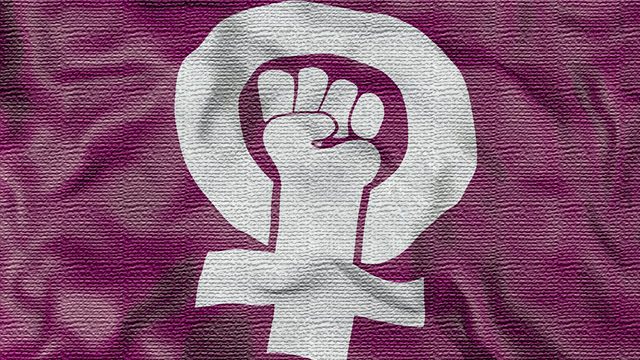SUMMARY
This is AI generated summarization, which may have errors. For context, always refer to the full article.

Why is it easy for other women/people to condemn the word feminism? Feminism is attacked despite the fact that we are walking along the path that women freedom fighters from the past have paved for us. Yes, we continue the struggle. But most shun the “label.”
To be called a feminist has become a taunt – a rabid woman, an Amazon, an angry female and a host of other insults. The feminist cliché. But what does it mean? What is feminism? Who is a feminist?
Often, feminism is mistaken as, simply, women hating men. But what feminists are against is a more complicated dichotomy – gender inequality. We feminists are against the oppressive patriarchal system – where women do not have the freedom to choose; where women are defined/boxed in stereotype “feminine” roles (e.g. cooking, cleaning, sewing, housework); where women are paid less and given less opportunities just because they are considered the lesser sex.
Feminism does not aim to relegate men. Men are as much victims as women. They have been conditioned by society through images and roles determined for men, having to succumb to appearances of male domineering attitudes or roles.
Feminism isn’t just for women. Feminism is the act of respecting and valuing women. Hence, men can be feminists, too – if they are aware of the issues that plague women; and acknowledge and take action against women’s subordination/oppression.
Feminists can come from all walks of life, nationalities, sexual preferences, beliefs, etc. Feminists can be heterosexual, bisexual, transgender, and the list goes on. Feminism is nuanced, and this is an important aspect of it. For example, not all feminists are lesbians and not all lesbians are feminists. The stigma attached to being gay/lesbian is the same societal discrimination put on being feminist. There is a fine line of identification that sexism blurs through irresponsible labels and generalizations.
A woman who wears make up can be a feminist. A woman who chooses to be a housewife can be a feminist. Keeping up one’s self-appearance and staying at home are choices that any woman should have. These are choices that should not be made with stigmas – such as make up as cover for insecurity, and domesticity as refuge for the weaker sex.
Feminism is not against motherhood. I once read that “womanhood is not equal to motherhood.” Definitely. It is not every woman’s destiny. It is not the only purpose in a woman’s life. Society should not condition a girl/woman to “motherhood” by glorifying her through her “sacrifice,” “selflessness,” and “suffering.” The girl/woman should have the choice whether she likes to be a mother or not. The ability and capacity to be one does not always come naturally.
Men can be mothers
More importantly, men can be mothers too. Motherhood is role that can be and must be shared with men.
And then there’s the tricky idea almost always linked to feminism—the concept of being liberal. I was once asked: “So you’re a feminist so it means it is ok with you to have an affair?” It is not.
This is not a question of loyalty, fidelity, or a host of Christian virtues that put prime on marriage or family. It is not ok simply because feminism is a collective form of empowerment. You cannot step on anyone else.

Feminism is constantly evolving. Its definition has transformed in many ways. The feminist authors Kamla Bhasin & Nighat Said Khan said that there is no specific abstract definition of feminism applicable at all times. The definition thus can and does change because feminism is based on historically and culturally concrete realities and levels of consciousness, perceptions and actions.
So I go back to my initial query: How does one define feminism? It is proactivity. It is taking action when one sees that oppression and exploitation exists in society, workplace and within the home.
Sexual oppression is experienced every day. We are living with it – in the comforts of our homes, in our relationships with our male loved ones (from our fathers, husbands, brothers, etc.). We often take the passive stance when faced with the idea of male superiority and domination simply because nobody wants to “rock the boat” and cause chaos in an otherwise peaceful home. But Rome was not built in a day. Patriarchy can and will be dismantled, one courage at a time, starting at home. We must acknowledge it. It is best to start within the home and try to put an end to these inequalities, double standards, and discrimination. And then we can extend it to our work place, community and society.
Feminism is a collective effort. It is not based on self-interest. I often get asked: “Don’t you think women are in a much better place now with all the popularity ‘women empowerment’ has drawn?” (Cue in the names of all the women CEOs, actresses, etc).
Feminism is a progressive idea wherein women are empowered as much as men. And this goes across the board, across status quos. We have yet to hear the empowered voices of the women from the working class, for example.
Feminist is all-inclusive. We cannot forget other women along the way to self-actualization. – Rappler.com
This was first published in Esquire in November 2015. Nikki Luna is an artist, feminist and founder of StartArt a non profit providing art workshops to women and youth victims of human rights violations. A UP Fine Arts graduate, she took her art residency at the Cooper Union school of Art in New York. She has mounted several exhibitions in local and international galleries and museums representing the Philippines. Her visual discourse revolves around women’s issues. Currently she is studying in depth her MA in women and development studies in UP. Follow her on Twitter @nikkiluna.
Flag from Shutterstock
Add a comment
How does this make you feel?
There are no comments yet. Add your comment to start the conversation.